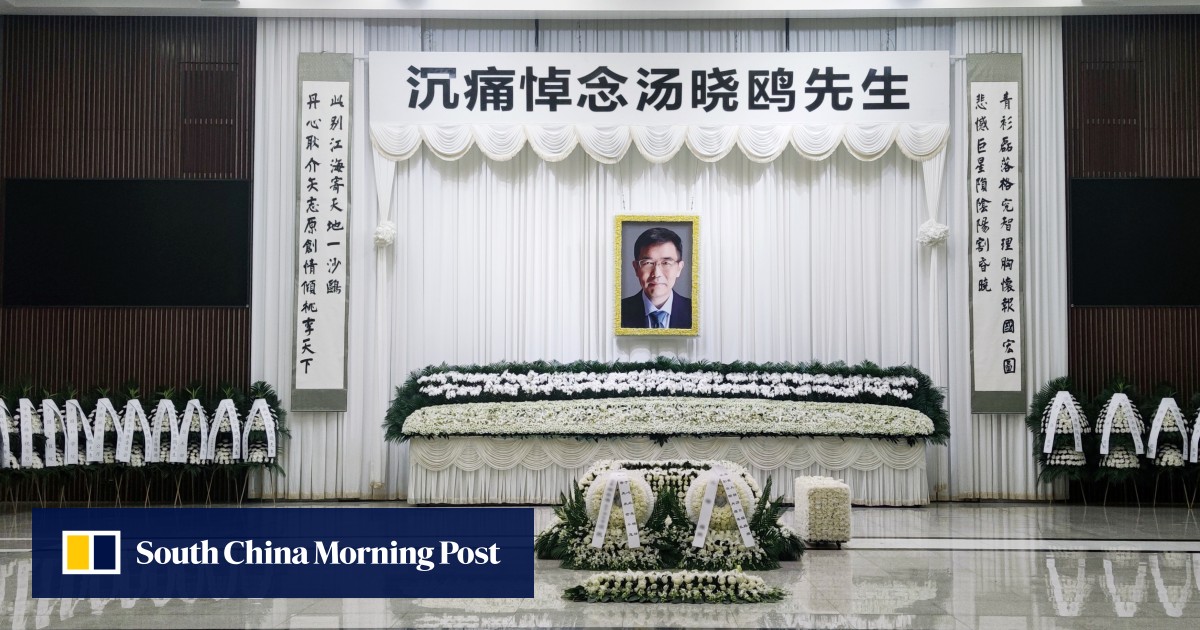The ceremony was held at Shanghai’s Longhua Funeral Home on Tuesday morning, according to a video from Shanghai-based Dragon TV.
Tributes were also paid by retired policymakers, including China’s former vice-premier Liu He, who was Chinese President Xi Jinping’s top economic aide until he retired in March, as well as Li Lanqing, who served from 1993 to 2003 as vice-premier and then executive vice-premier, and Yu Zhengsheng, China’s top political adviser from 2013 to 2018.
The extent of the high-level tributes for Tang signalled the importance that Beijing places on its drive for top talent and self-reliance as it seeks to counter Washington’s moves to block it from developing cutting-edge technologies amid an intensifying tech rivalry.
In March, Tang had joined the Chinese People’s Political Consultative Conference, the country’s top political advisory body, which includes officials, business leaders, scholars and other social elites among its more than 2,200 members.
Shanghai party chief Chen Jining led a delegation who attended the ceremony, bowing three times in front of Tang’s casket and expressed condolences to Tang’s family, according to the footage.
Chen was followed by the vice-minister of science and technology, Chen Jiachang, and Shanghai mayor Gong Zheng, as well as other top city leaders, Dragon TV reported.
Floral tributes were also sent from other senior officials in Beijing, including Yin Hejun, head of the country’s science and technology ministry, and Mu Hong, a former senior economic policy maker.
Before founding SenseTime in 2014, Tang had taught information engineering at CUHK since 1998, where he mentored many future computer scientists who have since become experts in China’s facial recognition technology and other AI applications.
Tang received his academic training in the US, including earning a PhD from the Massachusetts Institute of Technology in 1996. His leadership in the multibillion-dollar SenseTime paralleled Beijing’s tech drive, where cutting-edge technologies like artificial intelligence have been critical to China’s rising global ambitions.
SenseTime eventually became a key player in computer vision technology and the top Chinese provider of AI-powered facial recognition technology, used mainly in the public sector.
SenseTime mulls separate fundraising for auto and healthcare units: sources
SenseTime mulls separate fundraising for auto and healthcare units: sources
Since its founding, SenseTime has also been at the forefront of Beijing’s push to harness AI technologies to transform its economy.
Shanghai taps miHoYo, SenseTime and SMEE among its inaugural 40 tech champions
Shanghai taps miHoYo, SenseTime and SMEE among its inaugural 40 tech champions
In August, SenseTime, along with other companies like Chinese search giant Baidu, was among only a handful of Chinese firms to be granted an official Chinese permit to launch its answer to ChatGPT.







